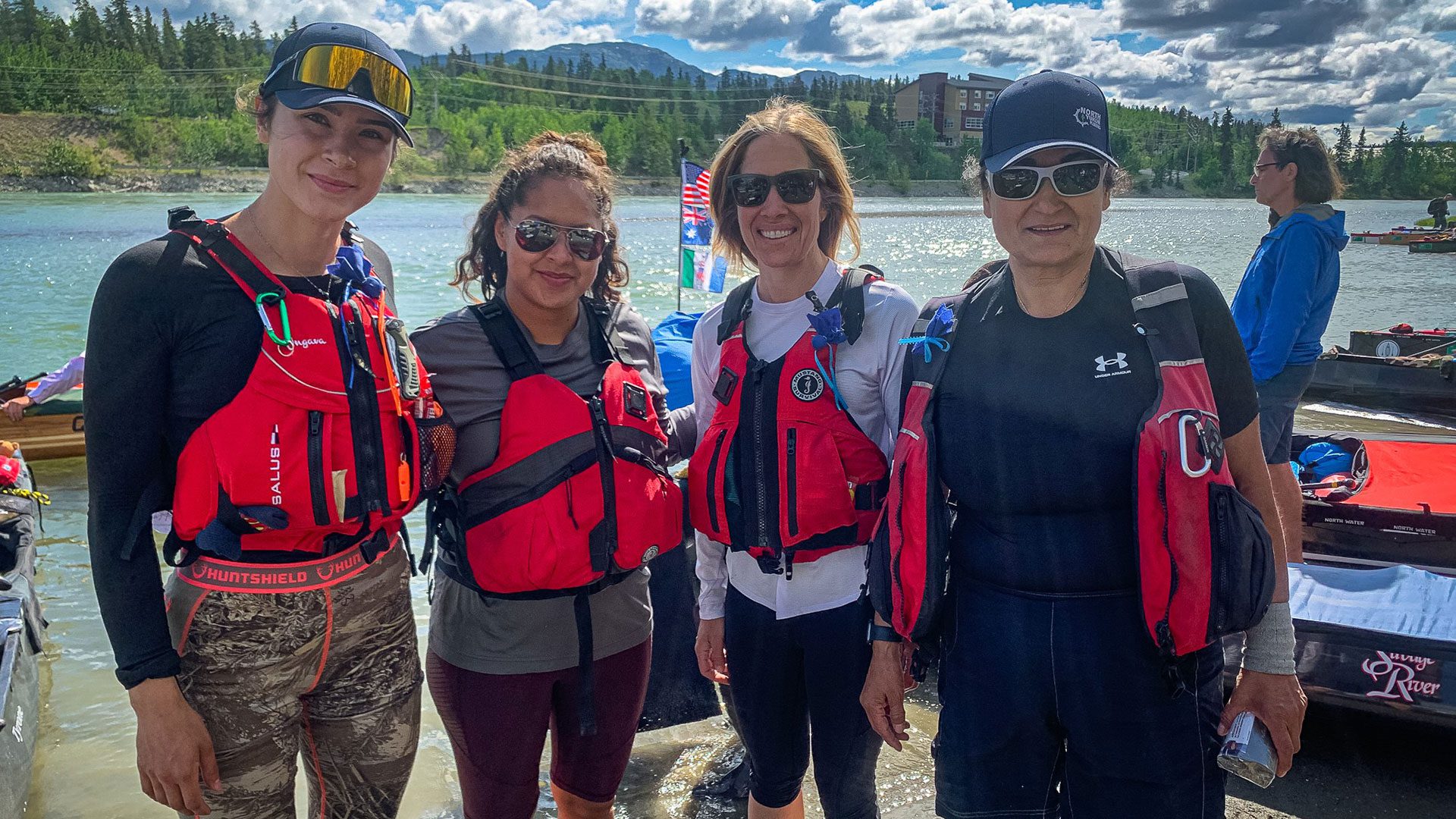As Pauline Frost gets ready to paddle on the Yukon River, she thinks of her grandmother, Clara Frost.
At six years of age, Clara was one of many children taken from her home community of Old Crow, Yukon, and sent south by boat to the Choutla residential school in Carcross.
“You can only imagine the anxiety, the fear, all of it, and being taken away from your parents, your way of life and your culture, all new surroundings with no love, no support,” says Frost.
Today, a portion of that same river is the route used for the Yukon River Quest, a yearly 715 km race from Whitehorse to Dawson City, Yukon.
This year 105 teams from across Canada and around the world are paddling the exhausting three-day race.
Frost, a Vuntut Gwitchin First Nation citizen, is leading a four-person women’s team, three of which identify as First Nations.
Frost is a veteran competitor and previously raced for other causes like missing and murdered Indigenous women and girls. She is also a former MLA and cabinet minister.
This year her team’s goal is to raise awareness about residential school survivors like Clara, as well as the children who never made it back home. It’s the meaning behind their team name, Every Child Matters.
“I look at the river, it has a story, and every story has to be told, and this is another reason to say this is not just about the Yukon River Quest, this is not just about a bunch of people jumping in their canoes racing to Dawson,” Frost says.
It’s a message that’s important to Frost’s daughter and teammate, Alice Frost.
“Being that we’re Indigenous and it’s close to our hearts, we feel strongly about it,” Alice tells APTN News.
She says the effects of residential school are still felt in Old Crow as the community has an alcohol ban.
“I didn’t go to residential school but I felt those barriers placed on me by people and on my culture…I just hope it gives people to stop and learn about what happened and educate themselves and know that people are still hurting,” she says.
It’s a similar sentiment for teammate Monica Johnson, a Kluane First Nation member with Gwich’in ancestry.
She says it is important to remember residential schools aren’t a distant memory for many Indigenous people.
“The last residential school to close it doors is that in the Yukon is Choutla in Carcross which is the last in 1970, and the last residential in Canada closed in 1997,” she says.
“That was 25 years ago and I’m 24, so it’s not something really that’s in the past and still quite relevant. I’m hoping with us going to Dawson it opens conversations and allows us to kind of continue that dialogue on.”
A brutal journey

The team has been preparing for the journey for two months.
They’ll paddle the first 24 hours without sleep, with only two rest stops until they reach Dawson City.
“Between the hours of 3 a.m. to 7 a.m. that’s when it really becomes like a mental battle. After awhile your body just kind of goes numb and it’s all a mental game from there,” Alice says.
Along the grueling route, the team will also stop in certain areas and make an offering of tobacco to the river for a safe journey.
Frost says she hopes her team’s cause will help others with their healing journey.
“I hope that everyone contributes in some small way to healing, to breaking the compound trauma and effects from residential school and collectively as a community we can start working towards a better future for our young people.”









